While skepticism is crucial to scientific inquiry and research, the precautionary principle is ambiguous about the distinction between risk and uncertainty. One challenge for proponents of the precautionary principle is to clarify when evidence that a harmful event could occur is sufficient to consider it a real possibility. Plausible versions of the principle must articulate a validation threshold that specify when precautionary measures are warranted. This article argues that the ambiguity can be resolved and the validation puzzle solved. Focusing on decisions in the context of climate uncertainty, this version of the precautionary principle serves as a plausible decision rule that can be applied in situations where the main alternative – cost-benefit analysis – fails.
Hopster, Jeroen. "Climate Uncertainty, Real Possibilities and the Precautionary Principle". Springer Nature. September 21, 2021. https://link.springer.com/... (Contributed by Gregory Autin).
Posted on 22/01/25
Recent Abstracts
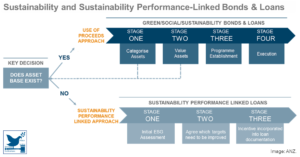
Sustainability-Linked Loans: A Strong ESG Commitment or a Vehicle for Greenwashing?
ESG lending has terms contractually tied to the sustainability performance of borrowing companies and enables them to credibly signal their ESG commitments to external stakeholders. But, it has been found that the disclosure of sustainability-linked loan contractual details is generally low, with considerable variatio ...
Posted on 22/07/22
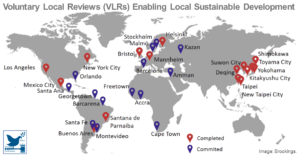
Voluntary Local Reviews, VLRs Toolbox
While contributing to local democracy, this toolbox supports local governments in monitoring and reporting on the implementation of the UN Sustainable Development Goals (SDGs) using voluntary local reviews (VLRs). VLRs contribute to the achievement of the SDGs by evaluating and monitoring progress, demonstrating polit ...
Posted on 18/07/22

United Hospitality Industry Sets Ambitious Global Vision for Sector Sustainability
This guidance for the hospitality industry is designed to encourage combined action across the value chain, with actions to support hotel operators, asset/building owners, and brands. It encourages all hotels to aim for net positive environmental impacts wherever they are located and whatever their starting point. Th ...
Posted on 15/07/22
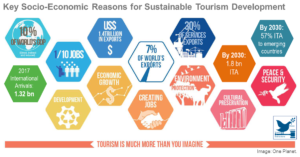
Sustainable Development
Sustainability principles balance the environmental, economic, and socio-cultural aspects of tourism development, to guarantee its long-term sustainability. Achieving sustainable tourism is a continuous process. These guidelines and management practices published by the UNWTO are applicable to all forms of tourism in ...
Posted on 13/07/22
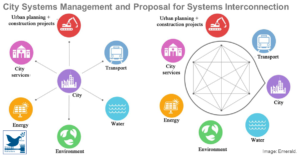
Saving the World through Zoning: The Sustainable Development Code, Regeneration, and Beyond
It is primarily the responsibility of local governments to protect the citizens and biosphere of their communities. To regulate the development of the built environment and land use, cities integrate sustainability into their plans and implement them through zoning and local building codes. Increasingly, local govern ...
Posted on 11/07/22
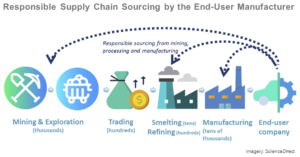
ESG Investing Has a Sustainability Blind Spot: Supply Chains
ESG agencies don't consider the global supply chains that support company operations when measuring and rating their ESG performance. Where ESG rating agencies ignore supply chains, the companies cherry-pick the metrics that boost their environmental and social sustainability ratings and ESG reporting. Biased perform ...
Posted on 08/07/22

Understanding the Effects of Environment, Social, and Governance Conduct on Financial Performance: Arguments for a Process and Integrated Modelling Approach
Current studies do not question the environmental (E), social (S) and governance (G) weightings assigned by rating agencies. Research findings on ESG conduct and financial performance of companies are inconclusive because they depend on relatively under-explored model specifications. Nor has research identified or ex ...
Posted on 06/07/22
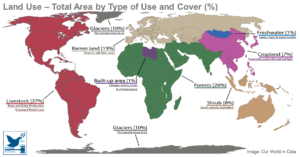
A Guide to Sustainable Urbanization and Land-Use
Land use must be managed and regulated to mitigate climate change, improve accessibility, enhance competitiveness, restore degraded biospheres, and promote social cohesion. This guide shares stakeholder experiences and increases their involvement and sense of responsibility, to gain broad political support for land-us ...
Posted on 04/07/22

World Cities in Terms of the Sustainable Development Concept
The sustainable development of cities requires significant investment, particularly in social development, purification, and preservation of urban nature from anthropogenic impacts. The analysis results in the systematization of the sustainable development criteria used in compiling the world cities rankings and deter ...
Posted on 01/07/22

The Thinking Building – A Complete Guide to Smart Buildings in APAC
Any building can benefit from smart building innovation and approaches to deliver the best value return on investment for owners and facilities managers. This guidebook by Cundall tackles some common questions and smart building misconceptions. It explains the pathways for buildings to improve performance and the occup ...
Posted on 29/06/22
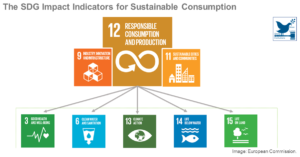
Pathway to Net Positive Hospitality
The future of tourism and the hospitality industry increasingly depends on protecting the unique and alluring locations in which hotels are located and operate. The Pathway to Net Positive Hospitality published by the Sustainable Hospitality Alliance offers simple and practical solutions that have a net positive impac ...
Posted on 27/06/22
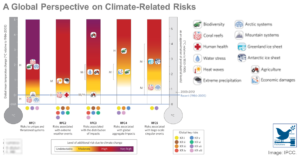
Achieving Global Biodiversity Goals by 2050 Requires Urgent and Integrated Actions
Top-level science-policy documents increasingly call for urgent transformative change to address the rapidly escalating global biodiversity crisis. The proposed actions in the new Post2020 Global Biodiversity Framework (GBF) could potentially bend the curve for biodiversity – but, only if promptly implemented and in a ...
Posted on 24/06/22
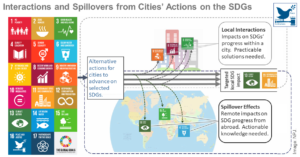
The SDGs in Austrian Cities: A Comparison between 2017 and 2021
Municipalities rely on the national governments for information, training, and financing to implement the Sustainable Development Goals (SDGs). This survey cites the main challenges for Austrian municipalities in adopting and implementing the SDGs and shows the need for urgent action at local, regional and national le ...
Posted on 20/06/22
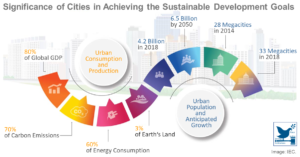
Guidance on Integrating the Sustainable Development Goals in Urban Climate Change Adaptation Projects
The application of the UN Sustainable Development Goals (SDGs) locally is critically important and decisive in achieving the sustainable development of countries. This guidance is based on both academic literature and professional experience in the field and is aimed at all professionals who work with climate change a ...
Posted on 17/06/22
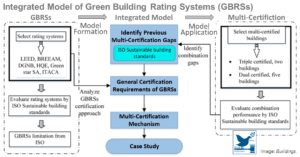
Is Sustainability Certification in Real Estate Worth It? – Evidence from European Office Markets
This analysis of European office space over a five-year period (2016–mid-2021) shows that the stock made up of certified buildings is steadily rising. In certified buildings, leasing velocity was generally higher, vacancy risk lower, and an average rent premium of 21% was observed. As countries increasingly announce ...
Posted on 15/06/22


